Witness an intriguing intersection of faiths as we explore the theory of Islam's Kaaba being mentioned in the Bible.
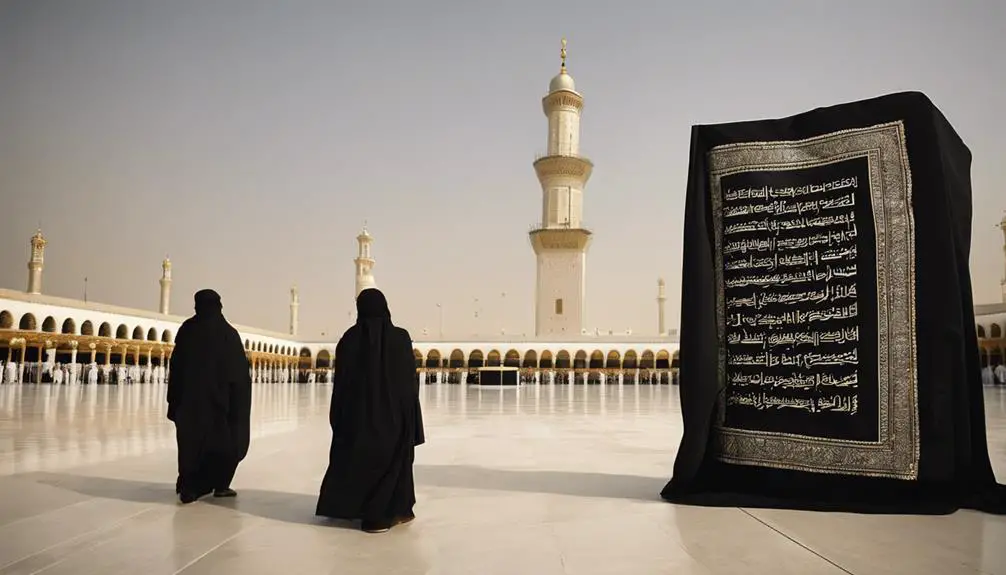
The Kaaba in the Bible
Let's pretend for a moment that you're an archaeologist, only your digging is done within the pages of ancient texts. In your exploration, you stumble upon a curious theory: the Kaaba, the sacred monument of Islam, is supposedly mentioned in the Bible.
It's a riveting concept, isn't it? But hold on, don't let assumptions carry you away just yet. How is this possible when the Bible predates Islam? What could be the potential implications?
And more importantly, how does this challenge or enhance your understanding of both faiths? There's a lot to unpack here, so let's get started.
Key Takeaways
- The Kaaba's significance lies in its symbolism as a unifying entity in Abrahamic religions and its role in Islamic faith.
- The Bible does not explicitly mention the Kaaba, but comparative analysis and interpretations suggest potential links.
- Passages in Genesis and Psalms have been interpreted by some scholars as veiled references to the Kaaba.
- The exploration of these connections fosters interfaith dialogue and requires careful scholarly scrutiny in comparative religion.
Understanding the Kaaba's Significance
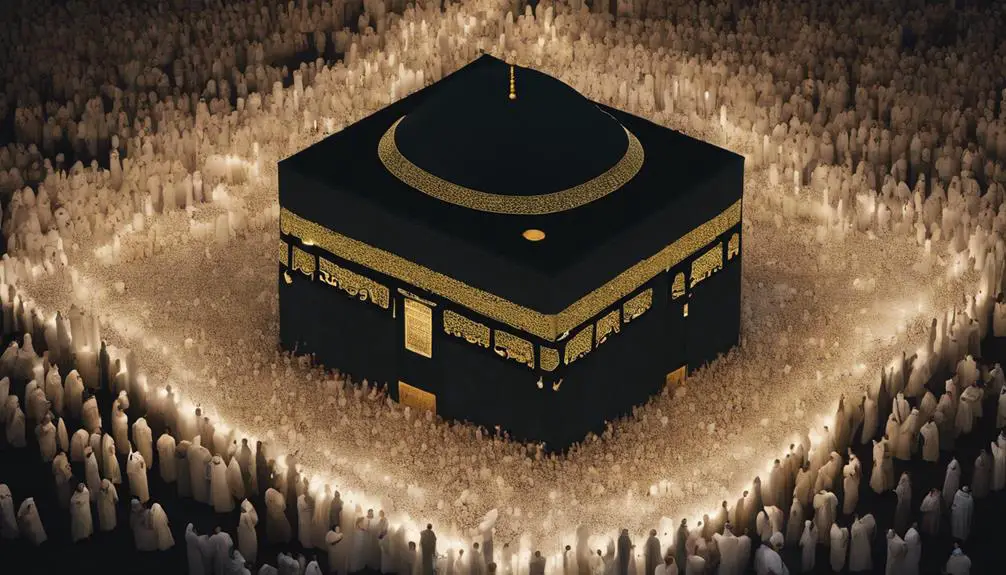
Often, you may find yourself wondering about the profound significance of the Kaaba, a crucial cornerstone in understanding the Abrahamic religions. This curiosity isn't misplaced. The Kaaba's origins and its Islamic significance form an intricate tapestry of socio-religious dynamics that continues to influence billions worldwide.
Delving into the Kaaba origins, it's believed to have been built by Prophet Abraham and his son Ishmael as a house of monotheistic worship. This narrative positions the Kaaba as a symbol of unity, not just for Muslims, but for all followers of the Abrahamic faiths. Yet, it's not just a historical artifact—it's central to the Islamic faith.
Its Islamic significance stems from its role in the Hajj, the annual pilgrimage that draws millions of Muslims from around the globe. They circle the Kaaba seven times, a ritual known as Tawaf, symbolizing the idea of life revolving around divine worship. It's also believed to be the earthly counterpart of the Baitul Mamoor, the heavenly house of God.
The Kaaba, thus, isn't just another religious structure. It's a symbol of unity, divine connection, and the profound spiritual heritage of the Abrahamic religions.
Biblical References and Interpretations
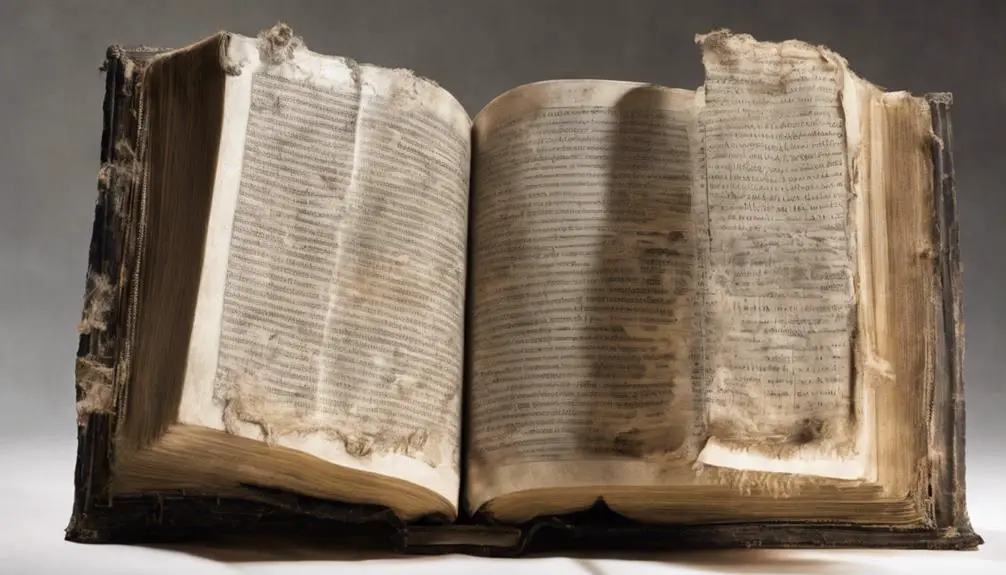
Let's delve into the Bible to uncover references and interpretations that may shed light on the Kaaba's place within the Abrahamic faiths. Although the Bible doesn't explicitly mention the Kaaba, a thorough scriptural context analysis might suggest implicit connections.
A comparative analysis of Biblical narratives and Islamic traditions can offer intriguing insights. For instance, the Bible's depiction of Abraham's journey to the land of Canaan, where he built altars, resonates with the Islamic narrative of Abraham's construction of the Kaaba. However, it's crucial to approach such parallels with scholarly caution, as interpretations can be subjective and multifaceted.
Similarly, Psalms 84, which refers to a pilgrimage to the 'valley of Baca', has been interpreted by some as a possible reference to Mecca and the Kaaba. Yet, this interpretation is disputed and must be considered within its broader linguistic and historical contexts.
Consequently, while the Bible mightn't directly reference the Kaaba, a comprehensive examination of its text within context allows for potential links to be drawn. Yet, it's essential to remember that interpretations vary, and consensus isn't often reached in the realm of religious studies.
Alleged Kaaba References in Genesis
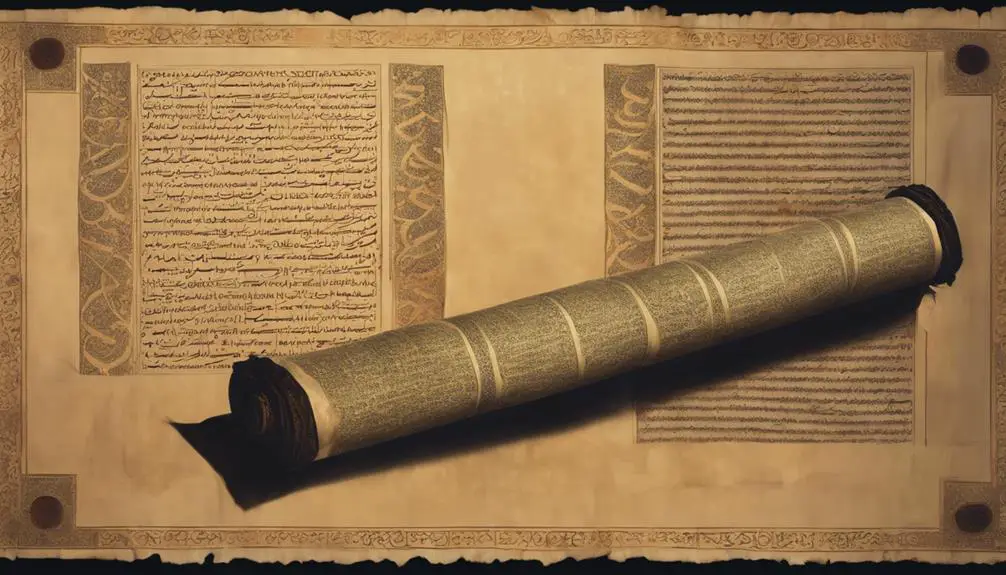
Delving into the book of Genesis, you'll discover passages that some scholars believe may implicitly reference the Kaaba, despite the absence of explicit mention. Genesis symbolism, with its rich tapestry of narratives and metaphors, allows for a wide range of interpretations.
Consider Genesis 21:31: 'Therefore that place was called Beersheba, because there both of them swore an oath.' The location Beersheba is often associated with sacred oaths and covenants, much like the Kaaba's role in Islamic faith. While this doesn't directly point to the Kaaba, the parallel in function suggests possible allusions.
Similarly, Biblical geography offers other potential clues. Genesis 25:18 hints at a location 'in the presence of all his brethren' that some scholars propose could be the Kaaba. The language is suggestive rather than definitive, again pointing to potential veiled references.
However, these interpretations hinge on reading Genesis through a particular lens, inferring connections to the Kaaba where none are expressly stated. They remain speculative and subject to rigorous academic debate. It's crucial to approach such interpretations with an open, yet critical, mindset.
Possible Connections to Psalms
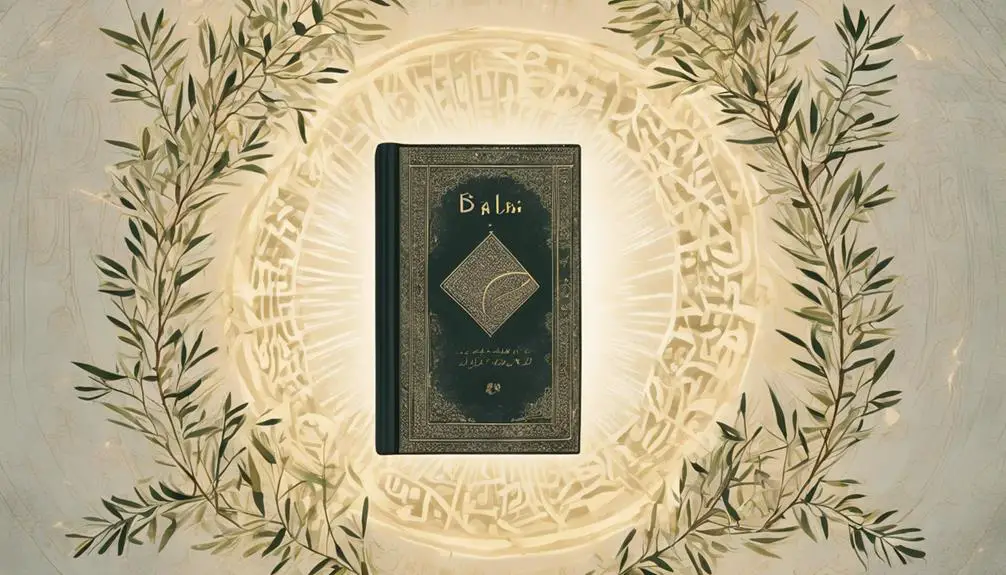
Turning your attention to the Psalms, you'll find other potential echoes of the Kaaba that merit consideration. The Psalms, a book in the Bible known for its rich symbolism, may contain references that parallel aspects of the Kaaba, the central shrine of Islam. This connection is not explicit, but it's grounded in the layered meanings of Psalms symbolism and Biblical prophecy.
Consider the table below, which outlines a few examples of these potential correlations:
Psalm Verse |
Possible Kaaba Connection |
|---|---|
Psalm 118:22 |
The stone that the builders rejected has become the cornerstone. This may be seen as a metaphor for the Kaaba. |
Psalm 84:3-4 |
Even the sparrow finds a home, and the swallow a nest for herself. This could symbolize the Kaaba as a spiritual home. |
Psalm 24:3-4 |
Who shall ascend the hill of the Lord? And who shall stand in his holy place? This could be seen as a prophetic allusion to pilgrimage to the Kaaba. |
These interpretations are speculative and require further scholarly examination. However, they offer a starting point for considering how the Psalms might reflect elements of the Kaaba.
The Kaaba and The Book of Isaiah
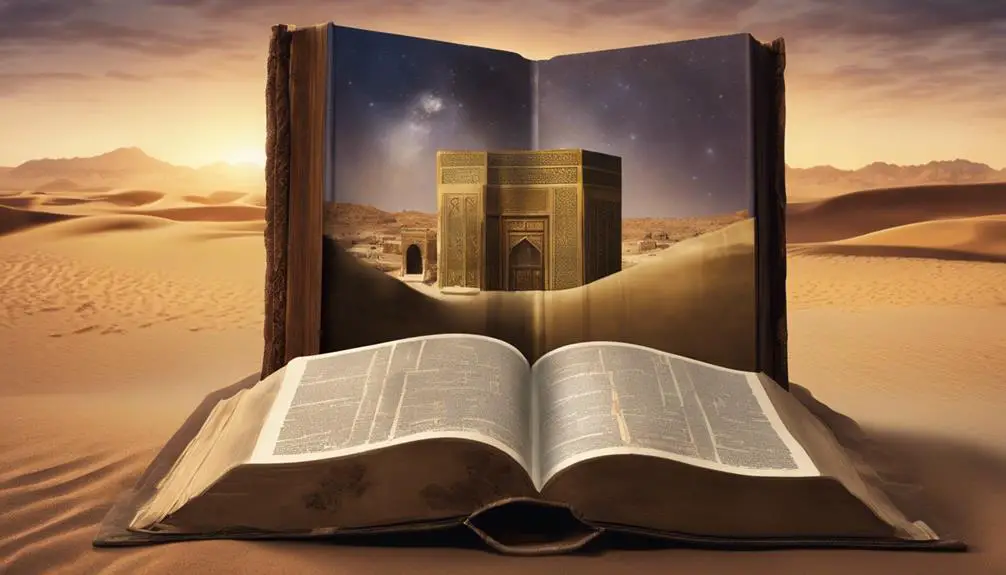
Exploring the Book of Isaiah may reveal additional biblical references potentially linked to the Kaaba, further enriching this intricate tapestry of religious symbolism. Isaiah's prophecy, with its vivid imagery and metaphors, has led some scholars to connect it with the Kaaba's symbolism. This connection is worth examining, as it may aid in understanding the intertwining of these two religious entities.
Isaiah's prophecy mentions a 'house of prayer for all nations'. Some interpret this as a possible reference to the Kaaba, which is a focal point for Muslim worship globally. The Kaaba's symbolism as a unifying structure for all the faithful might resonate with Isaiah's description of a universal house of prayer.
However, this interpretation isn't without its challenges. The Book of Isaiah is couched in complex biblical language and metaphors, making it difficult to draw definitive conclusions. Furthermore, it's essential to remember that correlations don't necessarily imply causation.
Still, the potential link between Isaiah's prophecy and the Kaaba's symbolism provides a fascinating avenue for scholarly exploration. It adds another layer to the ongoing dialogue about the Kaaba's presence and significance in the Bible. It's a discussion that continues to evolve, offering deeper insights into the interconnectedness of these religious traditions.
Controversial Theories and Debates
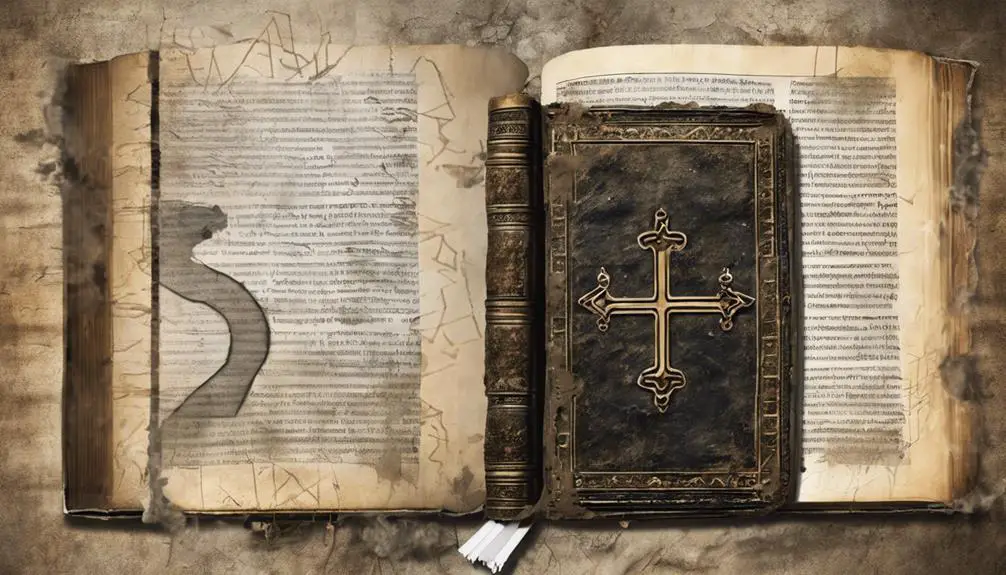
As you consider these potential connections between the Kaaba and the Book of Isaiah, it's also important to acknowledge the controversial theories and debates surrounding this topic. The realm of comparative religion is complex and often shrouded in historical controversies. Critics argue that any attempt to link the Kaaba with biblical texts is conjecture, lacking in substantive archaeological or historical evidence.
The debate intensifies when considering the interpretive nature of religious texts. It's no secret that scriptures can be read in different ways, leading to manifold interpretations. Some scholars argue that the verses in Isaiah may not be referencing the Kaaba at all but instead, other monuments or religious sites. Conversely, others are adamant in their belief that the Kaaba's mention in the Book of Isaiah is indisputable.
Furthermore, theories that propose the Kaaba as a biblically recognized location have been met with skepticism due to the Kaaba's pre-Islamic pagan associations. These controversies highlight the importance of careful, scholarly analysis in the field of comparative religion. It's clear that the Kaaba and its potential biblical connections continue to be a source of contentious debate.
Exploring Interfaith Perspectives
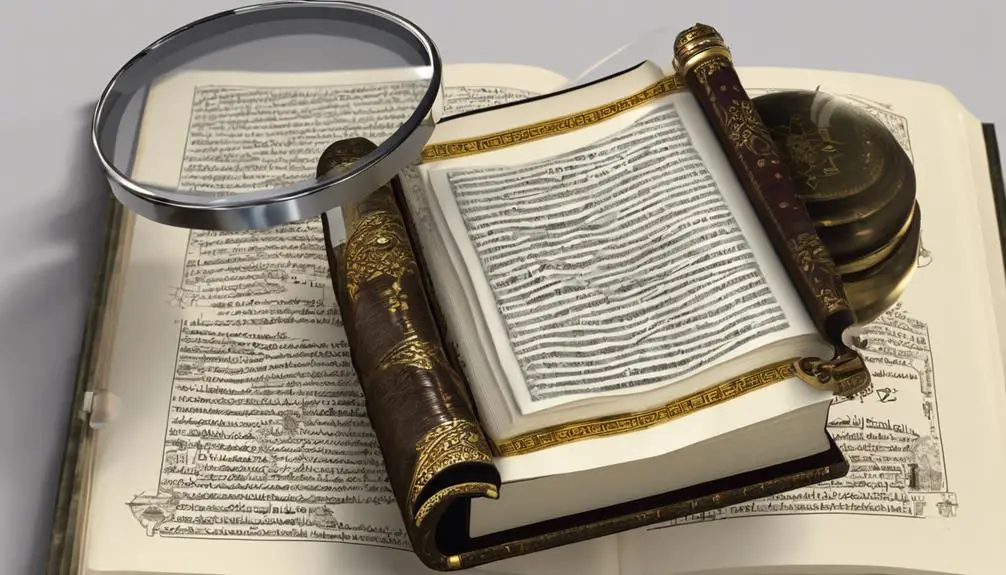
Delving into the realm of interfaith perspectives, you'll find a myriad of interpretations regarding the possible mention of the Kaaba in the Bible. Your exploration of these views won't be an easy task, given the complexity of religious texts and the diversity of belief systems.
Interfaith Dialogues provide a platform for such discussions, fostering mutual respect and understanding. You'll uncover a range of beliefs, from those who see direct Biblical Analogies linking the Kaaba to the Bible, to those who dismiss such connections as mere conjecture.
Some scholars, for instance, interpret certain Biblical scriptures as symbolic references to the Kaaba. They argue that phrases like 'the House of God' or 'the holy city' could potentially refer to the sacred Islamic site.
Others vehemently disagree, maintaining that these phrases are too ambiguous to definitively associate with the Kaaba. They argue that such interpretations often result from an imposition of Islamic perspectives onto Christian texts, which may not be entirely accurate or fair.
Frequently Asked Questions
What Is the History of the Construction of the Kaaba?
You're asking about the history of the Kaaba's construction. Its architecture dates back to pre-Islamic times. Abraham and his son Ishmael are traditionally believed to have built the original structure.
Over centuries, it's been reconstructed multiple times due to natural disasters.
It's important to note that these historical accounts come from Islamic tradition, as there's no mention of the Kaaba in the Bible.
Are There Any Specific Rituals Associated With the Kaaba in Islam?
Yes, there are several rituals associated with the Kaaba in Islam. You'd partake in Tawaf, circling the Kaaba seven times, symbolizing the unity of the faithful.
You'd also perform the Sa'i, running between the hills of Safa and Marwa.
These rituals, deeply rooted in Kaaba symbolism, are integral parts of the Hajj and Umrah pilgrimages. They serve to strengthen Muslim unity and devotion, reinforcing the centrality of the Kaaba in Islamic worship.
How Does the Kaaba Play a Role in the Annual Hajj Pilgrimage?
You're likely aware that the Kaaba plays a significant role in the annual Hajj pilgrimage. As a central symbol of Islam, it's the focal point of the Hajj. It's circled seven times by pilgrims, symbolizing their unity and devotion.
The impact of the Hajj is profound, creating a deep sense of communal identity among Muslims. However, this doesn't relate to the Kaaba's presence in the Bible, as the concepts are distinct.
What Is Inside the Kaaba and Can Non-Muslims Enter It?
Inside the Kaaba, you'll find a marble and limestone structure decorated with calligraphy. Non-Muslims can't enter due to religious restrictions.
From a non-Muslim perspective, you might find the Kaaba's architecture fascinating, but you'll have to appreciate it from afar.
It's an integral part of Islamic tradition and a significant symbol of their faith.
How Does the Kaaba's Significance in Islam Compare to Its Possible References in the Bible?
You're exploring the Kaaba's significance in Islam versus its possible biblical references. Islamic belief holds the Kaaba as the holiest site, the center of Muslim prayer.
Biblical interpretations, however, don't explicitly mention the Kaaba. Any connection relies on interpretation and conjecture, making Kaaba symbolism in the Bible not as clear-cut.
It's critical to approach this subject with an understanding of the different religious contexts involved.
Conclusion
You've journeyed through biblical interpretations, potential Genesis references, possible Psalms connections, and Isaiah's ties to the Kaaba.
You've considered controversial theories and explored interfaith perspectives.
The Kaaba's presence in the Bible isn't definitively proven, but the exploration invites a richer understanding of religious texts.
Ultimately, it's up to you to decide what these potential links mean in your spiritual journey. Remember, respectful dialogue and open-mindedness are key in interfaith understanding.


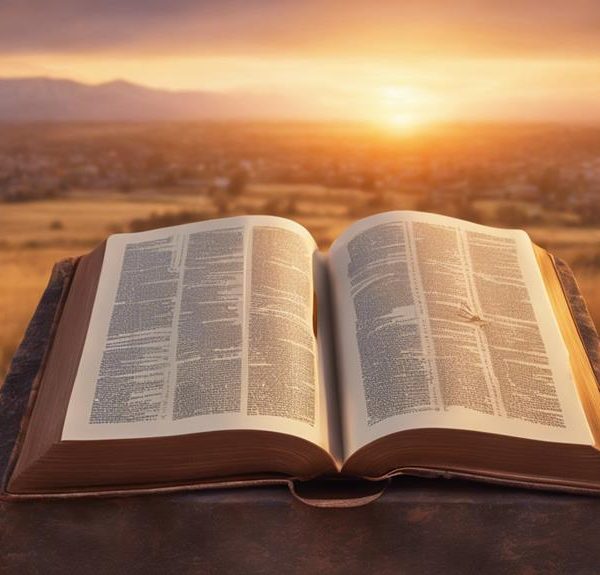
Sign up